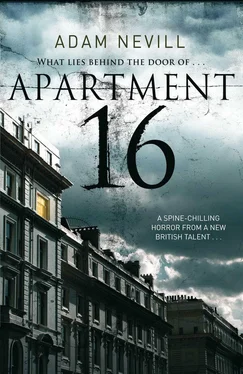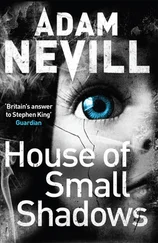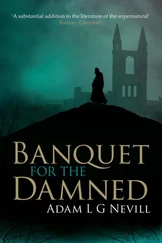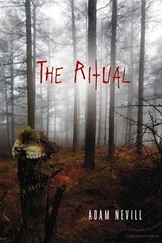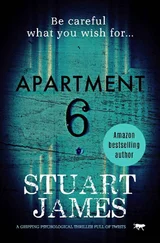She’d budgeted to arrange a quick sale of the flat and a hasty disposal of Lillian’s possessions in two weeks. But she didn’t want that any more. She wanted to stay here and learn about her great-aunt and uncle. She wanted to examine and consider and collect and preserve. This wasn’t junk. It meant something to Lillian. All of it.
There had to be letters. Maybe a diary. She’d have to sift and discard in here like an archaeologist, in between dealing with real-estate agents and all of the legal stuff. Work fast and maybe see a bit of London too. But Lillian had to come first. If it meant cashing the rest of her savings and quitting her job back home, so be it. She would know every single thing there was to know about her great-aunt.
Changed into his uniform, with a cup of tea in his hand, when Seth came up from the staffroom he was hoping Piotr had already made his way down to the basement garage where his rusted shitbox car was parked. Instead, Piotr had merely pulled his red anorak over his sweat-clouded polyester shirt and was waiting for him. Grinning, he held up the duty log. ‘Ah, Seth being seeing the ghosts again! We all laugh so much when we read the log. Maybe he drink the whisky in the night and he see things, eh?’ He rolled his eyes and raised a hand as if to simulate drinking from a glass.
‘I didn’t say I saw anything. I reported a disturbance. A noise. Someone’s been in sixteen. I heard them.’
But Piotr wasn’t listening. ‘You should polish the brass at night. I tell Stephen but he no listen. Then you being doing work and not have the time to see the ghosts.’ The door closed on the swishing anorak and beaming face.
He wouldn’t make another report, no matter what he heard. Fuck it. He’d done his job; if something was stolen, he’d warned them.
He collapsed into the chair and thought again about the dream he’d had that afternoon. It left him nostalgic but uneasy. As a kid, he used to visit that chamber in nightmares. Trying to scream, while strangely mute, as he was pushed inside the chamber against his will. It started around the time his dad left. Over and over again, he used to find that weird stone chamber in his dreams. It was an actual mausoleum he’d once seen with his nan, as they walked through an unkempt corner of the cemetery where his grandfather was buried. All the flowers were dead and the names of people were worn off the stone tablets and markers. It terrified him. He could not accept that his mum and dad would die and leave him one day, and then end up inside one of those stone enclosures or the mausoleum. And that he would die too. His nan said, with a smile, ‘Not for a long time, Seth.’ But the cold marble mausoleum with the little light inside, and the locked gate and barred windows, haunted him. He imagined being put in there. Being dead in there. Where he would stand on the wrong side of the little gate crying for his mum and dad who couldn’t see him. Would watch them walk away through the headstones. He used to see them clearly, starting the white Allegro before driving off and leaving him behind the gate, sobbing, hysterical.
He shook himself. Even now he didn’t like remembering it. As a kid, the fear of the chamber used to tighten his chest so much he couldn’t breathe.
He should call his mum. His dad. His sister. The dream made him want to. He couldn’t remember the last time he had spoken to any of them. He’d let everything go.
Seth sighed and glanced over the duty clipboard to force himself to think of something else. Only twenty of the forty apartments were in use. Same situation as during his four shifts the previous week.
Most of the penthouse suites were either holiday homes for the absurdly rich or corporate flats for employees working in the city. Although some of the flats were occupied by troublesome permanent tenants, he was rarely bothered during the night. Though he noted one addition in flat thirty-nine in the east wing. Someone had moved in. The old girl, Lillian, had died. In a taxi or something a couple of months back. Stephen had told him the day after, but he’d never seen the woman during his shifts. She never came out at night. The new tenant was listed as Apryl Beckford. He wondered what she looked like.
When he finished the last dregs of his tea, he walked into the ornamental garden built at the intersection of the two wings. He rolled and then smoked a thin cigarette while listening to the fountain. The memory of the dream dimmed and he began to feel something like relief to be back at work. There were few chores, only the occasional patrol to make and guest to sign in. It was less demoralizing than life at the Green Man, and more comfortable too. Once, before he started work at Barrington House, the building had even been featured in Hello! magazine, on account of some footballer who used to live there. An ideal old-school job for an artist, he’d once hoped, but he’d stopped sketching as soon as he took his place in the leather chair in reception. Now he suspected he had put himself there to forget and be forgotten; to ease himself out of mainstream life in the most comfortable way possible. And that notion no longer troubled him.
After his spent cigarette landed in the fountain he returned to the chair and began to yawn. Another restless night. Arab teenagers in performance cars circled Lowndes Square. He checked his watch. Still another ten hours before he could leave in the morning and fall into a deep sleep. Preferably a dreamless coma.
Leafing through the television listings in the Evening Standard, he was suddenly startled by the buzzing of the house phone. On the brass panel he could see a red light next to the label for apartment forty.
‘What the fuck do you want?’ he whispered to himself. It was Mr Glock, the middle-aged Swiss playboy, and the rudest man Seth had ever met. He picked up the handset to stop the deafening trill from the panel’s speaker. ‘Seth speaking.’
‘I need a taxi for Heathrow. Do it now.’ Mr Glock hung up.
No other tenant so reinforced his long-held suspicion that the rich were an unpleasant crowd. When he first began working in the building, the tenants and their absurd wealth intimidated him, as if their very presence shone lights about his stained tie, the scuffs on his shoes and the gaping holes in his curriculum vitae. It had made him ridiculously diffident in their presence. But after half a year of taking their stinking rubbish out and witnessing countless demonstrations of self-importance before his desk, compounded with their affected accents and vulgar furnishings, his awe had gradually reduced to a simmer of resentment. He’d little respect left for any of them. Especially Glock. Working here assured Seth that money favoured the worst kind of people.
He took the lift up to the fourth floor, where Glock’s bags would be waiting. On the way up he mopped his face with a paper towel. The texture of the paper hurt the hot, delicate skin of his forehead and cheeks. Remembering an Asian man who sneezed on him in the cinema, he wondered if he’d picked up a tropical illness from a foreigner. He rubbed at his neck, feeling the beginning of a tickle in his throat. Then recalled that nasty cold air he had sucked in while looking through the letter box of apartment sixteen, and winced. He thought he could still taste the dust.
Once Glock and his bags were taken care of, Seth rolled a cigarette and watched the cab pull away from the kerb and drive out of the square. He told himself it was absolutely the last time he was getting out of the chair for the duration of the shift. He felt like shit. The tickle at the back of his throat had turned into something raw. Under his blazer, his shirt clung to his back.
But his respite slumped behind the desk was short-lived. The next person to demand his attention was Mrs Shafer, the elderly wife of an invalided American stockbroker. They lived in apartment twelve.
Читать дальше
